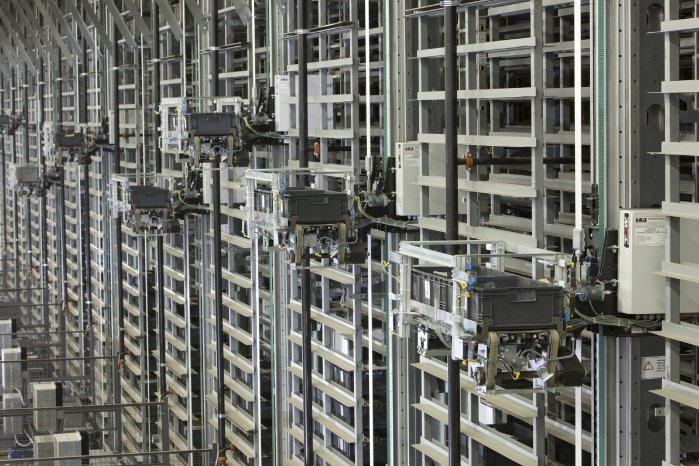From a single store launched in 1967, Minnesotabased Fastenal (NASDAQ:FAST) has grown into the nation's largest distributor of industrial fasteners, with 2,400+ store locations across 18 regions of the country. The company has also grown by expanding the number of products it offers by 175,000 SKUs. In order to handle this growth, the company installed the initial phase of a goodstotheperson miniload automated order picking system from TGW. The system comprised 12 miniload cranes that deliver totes to ergonomic workstations where operators do order picking for 275 stores and replenish stock at 13 regional distribution centers around the country.
Fastenal will now be doubling the size of the AS/RS by adding 13 new miniload cranes as well as carton and tote conveyor from TGW. The addition will double the capacity of the AS/RS to over 250,000 tote locations.
"With over 400,000 unique SKUs in our product line, being able to quickly fill orders in a high density storage environment is a key component of our overall supply chain strategy," said Walter Tate, Fastenal's manager of distribution development. "TGW's minload Mustang AS/RS, combined with their carton and tote conveyor solution, will allow us to handle our growth in an efficient manner."
For TGW, expanding the partnership with Fastenal is proving the growing value of high speed AS/RS in the US. "The use of miniload AS/RS technology is a growing market in the US as many companies are including this technology to improve operations and reduce the cost of small parts handling," said Larry Strayhorn, President of TGW in the US. "When companies like Fastenal realize the value of using AS/RS for high density storage and for exponentially reducing the number of times product is manually handled in the distribution environment, more and more companies will embrace AS/RS."
Reducing product touches is important to Fastenal. "It's about applying automation where we can and trying to minimize product handling," continued Tate. "We touch the product when it arrives at the receiving dock and again when we pick it to ship it out the door. Every time you touch a product, there's an opportunity for a mistake and it adds cost. By eliminating those touches, we've reduced the opportunity for error and reduced our operating costs."
www.tgw-group.com


